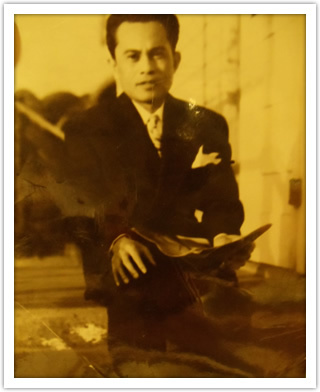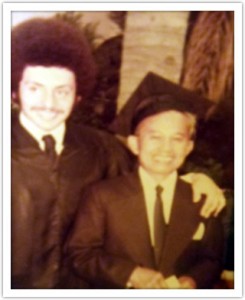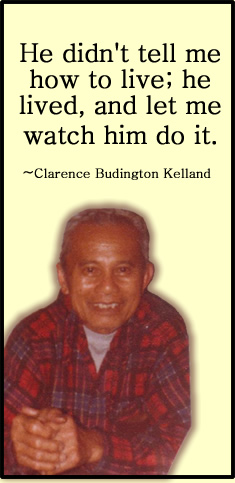
He never went home.
He left his native county at the age of 20 to find work. Born in an impoverished area of a poor country, he left home to earn money which he could send back to his mother and eight siblings.
He ventured through, and stayed briefly at, a few countries, eventually reaching the United States.
For the next 25 years, he crisscrossed California, Arizona, and Utah, moving from crop to crop before settling in San Diego where he worked as a dishwasher at one of the city’s most prestigious restaurants.
He worked Monday through Sunday at minimum wage, and was given only two days off per year, Thanksgiving and Christmas. He was not paid overtime and was not part of a union.
He never owned a car, boarding the number 11 bus at 3:15 p.m. on 37th and National Avenue and arriving at work at 4: 05 p.m. After closing time, he was responsible for mopping, dusting, sweeping, and cleaning the entire building, including both restrooms, the kitchen, and the giant freezer room.
He would get on the bus at 5:20 a.m. to return home. At 6:05 a.m. he would gently wake me up to go to school.
My Father, My Hero
My father was paid weekly on Tuesdays. He would walk to the corner store, buy a money order for $25.00 or whatever he could afford, and send it to his mother.
As I grew older, I became the person responsible for filling out and mailing the money order. It was an honor. He continued to support them, up to the last week of his life.
My father died at the age of 71. He had not seen his mother or any family members for the last 50 years of his life.
My father, along with my mother, taught me the love of reading and education. If I wanted a comic book, a sports magazine, or a novel, he found a way to buy it for me. He would listen patiently to me as I recited the main points the next day.

He consistently encouraged me to study hard so I could someday go to college. When I was accepted to USC, he proudly told his co-workers I had been accepted to USCLA, a mixture of USC and our arch rival, UCLA.
He was afraid to ask for a day off to attend my graduation, so I called his employer and asked for him. I still remember his huge smile when I put my cap on his head and showed him my diploma.
My father always tried to follow the news on television and radio. He was a John Kennedy enthusiast and believed in JFK’s call for a just and humane society.
Together we watched the news of Kennedy’s inauguration.
Almost three years later we watched the news covering Kennedy’s assassination to his funeral procession. That weekend, lasting from Thursday to Monday, but which seemed so much longer, my father sacrificed most of his limited hours for sleep and rest.
At the end, visibly tired and shaken, he told me, “We lost a good man.”
My father enjoyed when I would read parts of the San Diego Union to him as he sipped coffee and I ate my afternoon donuts with a glass of milk. He could not read, something I never suspected as a young child. After we shared the news, he would happily leave to catch the bus for work.
As he walked down the street, whistling a soft, joyful tune, I felt sad he would not be home to share the evening with us.
My Father, My Inspiration
My father showed me how to be a parent and husband.
A day never passed without a hug, a kiss, a smile, a positive comment, or “I love you.”
As I left to play baseball at an old neighborhood sandlot or basketball on an old court with a chain link basket outside St. Jude’s Church, he would give me all the change in his pocket. He made sure I could buy myself and my friends some refreshments afterwards.

He raised my older sisters, who had been abandoned by their United States citizen father, with the same unconditional love that he gave to me.
For years my father and mother rode the same bus to work. He became her friend during her time of need. A few years later, they became common law husband and wife.
On my mother’s 55th birthday, they quietly married. When they returned home, my mother showed us the diamond ring he bought for her. Small by today’s standards, it was huge to my sisters and me. Worried about losing his job, he went to work that evening.
My father saved and recycled newspapers, bottles, rice bags, and aluminum cans to earn a few extra dollars, which usually was spent on buying some toys for us.
He took pride in buying us those toys and in giving us things he did not have as a child: adequate food, clothing, shelter, and medical care.
We never received governmental assistance. We never felt deprived.
Today I live a good life. I am a Harvard Law School graduate.
I have law offices in three Southern California counties. I have a wonderful wife and children. I live in a nice neighborhood, wear nice suits, and drive a nice car. For all this, I owe my father an immense gratitude, far greater than words could ever express.
Frank Antonio Batara’s life was simpler yet grander.
He demonstrated a person’s value is not determined by rank in society, but kindness of soul and spirit.
Although he only stood 4″11′, he remains a giant as a person, father, and husband. I will never fit into his shoes.
As a young kid, my future was founded upon the many sacrifices of my parents.
My father, who came here with so little and demanded even less, experienced the American Dream without complaints or regrets.
My father raised me and my abandoned sisters, provided life’s necessities for my mother, and never quit taking care of his mother, without seeking anything more than a job where he could earn a honest day’s wages for a honest day’s work.
My father was an immigrant.
My father was an American success story.
By Carlos Batara, Immigration Law, Policy, And Politics
(Note: An earlier version of this article was was originally posted in Batara On Immigration: Personal, Passionate, And Provocative.)




